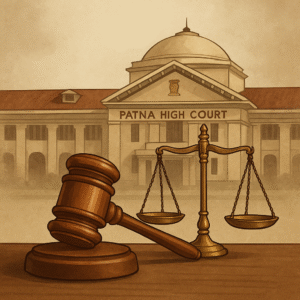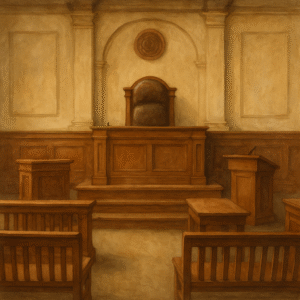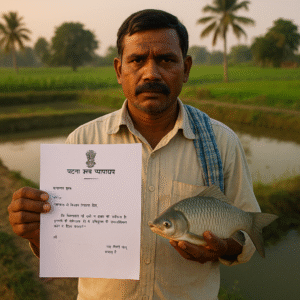Simplified Explanation of the Judgment
In February 2021, the Patna High Court delivered a crucial ruling in a dowry death case arising from Bhojpur district. Several members of a family, including the husband of the deceased, had been convicted by a trial court for offences under Sections 304B (dowry death) and 498A (cruelty by husband or relatives) of the Indian Penal Code. On appeal, however, the High Court found glaring gaps in the prosecution’s evidence and set aside the conviction, acquitting all accused persons.
Background of the Case
The case concerned the death of a young married woman, Anshu Devi, who had been married to one of the appellants (Sanjay Sharma) for about two years before the incident. She died of burn injuries in her matrimonial home in May 2016, leaving behind a seven-month-old infant son.
According to the prosecution, the accused family members had been demanding a motorcycle as dowry soon after marriage. When the demand was not fulfilled, they allegedly subjected the woman to cruelty, eventually leading to her death.
The victim’s relative, Jagroshan Sharma, filed a written report alleging that the appellants had set her ablaze for dowry. Based on this, a case was registered under Sections 304B/34 IPC, and charges under Sections 304B and 302 IPC were framed.
Trial Court’s Decision (2019)
The trial court convicted:
- Sanjay Sharma (husband): 8 years rigorous imprisonment under Section 304B IPC and 3 years under Section 498A IPC, along with fines.
- Other family members: Convicted under Section 498A IPC and sentenced to 3 years’ imprisonment plus fines.
The trial court directed that the fine amount be paid to the minor son of the deceased.
Appeals Before the High Court
The convicted family members filed three criminal appeals before the Patna High Court, which were heard together.
Appellants’ Arguments:
- Weak Evidence: The prosecution witnesses (PWs 1 and 2) were hearsay witnesses. They admitted they had only heard about the dowry demand from others.
- Lack of Proof of Cruelty: The only direct witness (PW 3) claimed that there was a demand for a motorcycle, but he never complained to any authority before the death. He also did not testify about any cruelty or torture “soon before” the death, which is a mandatory requirement under Section 304B.
- Alternative Explanation: Defence witnesses testified that the victim died accidentally while cooking, and there was no harassment for dowry.
State’s Arguments:
The State argued that the unnatural death within two years of marriage itself raised a presumption of dowry death under Section 113B of the Evidence Act. Since there was a dowry demand, the conviction was justified.
Court’s Observations
Justice Birendra Kumar closely scrutinized the evidence:
- Hearsay Testimony: PW 1 and PW 2’s evidence was based only on what they were told by PW 3. This amounted to hearsay and was inadmissible to prove cruelty or harassment.
- PW 3’s Testimony: While PW 3 alleged dowry demand, he did not state that the deceased was harassed or tortured soon before her death. This is a critical legal requirement under Section 304B IPC.
- Medical Evidence: The doctor (PW 4) confirmed death due to burns, but medical testimony alone could not establish cruelty or dowry harassment.
- Legal Position: The Court cited Supreme Court rulings (Baijnath v. State of M.P., 2016; Bakshish Ram v. State of Punjab, 2013) which clarified that the presumption of dowry death under Section 113B Evidence Act arises only if cruelty or harassment linked to dowry demand is proved to have occurred soon before death. Mere proof of death within 7 years of marriage is insufficient.
Since the prosecution failed to prove this crucial element, the conviction could not be sustained.
Final Judgment
- The High Court set aside the conviction and sentences of all appellants.
- Sanjay Sharma (husband), who was in jail, was ordered to be released immediately.
- The bail bonds of other accused family members were discharged.
Significance or Implication of the Judgment
- For criminal law: The case reaffirms that conviction for dowry death requires strict proof of cruelty or harassment “soon before death.” Courts cannot rely on assumptions or weak evidence.
- For women’s rights: While dowry death is a grave social issue, this judgment stresses the need for credible, corroborated testimony to avoid wrongful convictions.
- For legal practitioners: Defence lawyers can rely on this ruling to argue that hearsay evidence is insufficient in dowry death trials.
Legal Issues and Court’s Decision
- Whether death by burns within 7 years of marriage automatically amounts to dowry death?
• No. There must be clear proof of cruelty or harassment linked to dowry demand “soon before” death. - Whether hearsay witnesses can prove cruelty or dowry demand?
• No. Only direct, credible evidence can sustain conviction. - Whether conviction under Sections 304B/498A IPC was valid here?
• No. Lack of proof of harassment made conviction unsustainable.
Judgments Referred by Court
- Bakshish Ram v. State of Punjab, (2013) 4 SCC 131
- M. Srinivasulu v. State of A.P., (2007) 12 SCC 443
- Baijnath v. State of M.P., AIR 2016 SC 5313
- Amar Singh v. State of Rajasthan, AIR 2010 SC 3391
Case Title
- Gudhiya Devi & Anr. v. State of Bihar (Cr. App. SJ No.125 of 2020)
- Lagani Devi & Anr. v. State of Bihar (Cr. App. SJ No.129 of 2020)
- Sanjay Sharma v. State of Bihar (Cr. App. SJ No.712 of 2020)
Case Numbers
Criminal Appeal (SJ) Nos. 125, 129, and 712 of 2020 (arising out of Bihiya P.S. Case No.132 of 2016)
Citation(s)
2021(1)PLJR 728
Coram and Names of Judges
Hon’ble Mr. Justice Birendra Kumar
Names of Advocates
- For Appellants: Mr. Rajendra Kumar Dubey, Mr. Ajay Kumar Thakur
- For State: Mr. Bipin Kumar, APP
Link to Judgment
MjQjMTI1IzIwMjAjMSNO-MnxBmUg9b–ak1–g=
If you found this explanation helpful and wish to stay informed about how legal developments may affect your rights in Bihar, you may consider following Samvida Law Associates for more updates.








